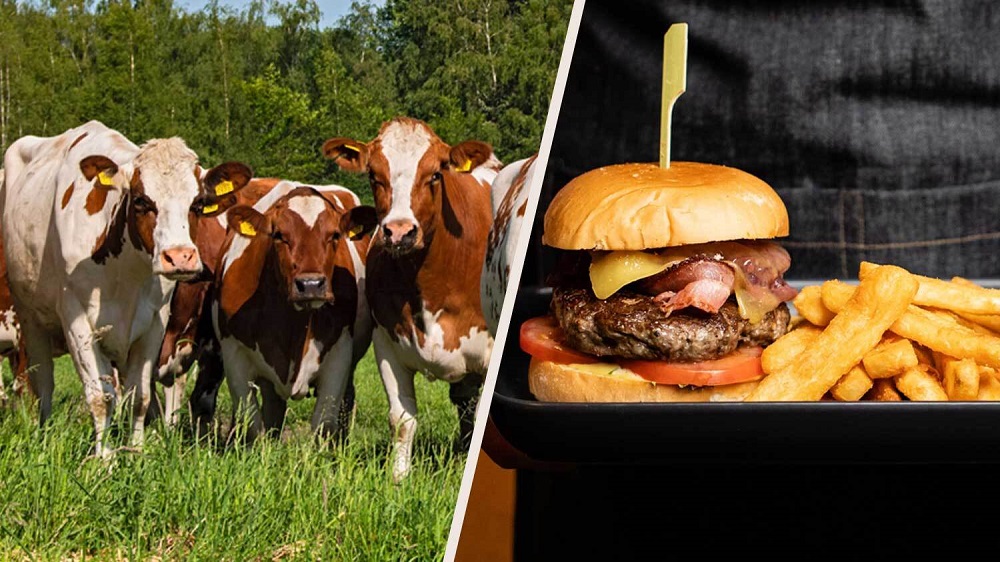By Roger Lienhard, Founder & Executive Chairman of Blue Horizon
What do you picture when you think of the American diet? It’s probably something like a double cheeseburger with fries and soda. Or, it’s your standard meat-and-potatoes dinner. These iconic meals have arguably changed the way the world eats. Born in America, fast-food chains like McDonald’s, Burger King, and KFC are global brands. Global meat consumption is increasing as the livestock sector continues to rapidly expand to meet the demand brought on by rising incomes and urbanization. And meat isn’t alone here: as incomes rise, so does the consumption of all animal products.
The advent of intensive animal farming, following the mass-production model that led to supermarket aisles packed with canned fruit and vegetables, allowed the American food industry to rapidly produce meat, milk, and eggs starting in the 1960s. At the time it was celebrated as an efficient model for providing food security.
Technology is wonderful in this way: it can be the solution to issues afflicting the masses. The internet has allowed us to connect with and better understand people across the globe. But, technology doesn’t always have the effect that we want it to. In factory farming’s case, we caused such a sharp increase in the number of greenhouse gases in the atmosphere that we are now facing a global climate crisis that many still seem to fail to take seriously. Plus, food insecurity is still a problem, even in “developed” nations like the U.S.

Global per capita consumption of meat has increased by 20 kilograms since 1961 and in 2014, the average person ate 44 kilograms of meat—six-and-a-half times the weight of a bowling ball. Total meat production is outpacing population growth (and again, people are still going hungry). Animal agriculture now accounts for a significant chunk of carbon emissions–14.5 percent, to be exact. According to the UN, global meat consumption will increase by 76 percent by 2050. Thanks to research, we know that the planet cannot continue to withstand the current rate of production, let alone even more factory farms. Animal product-heavy diets have also been linked to the increased risk of chronic diseases from cardiovascular disease to forms of cancer. We should already be taking fast action. But so far, very few countries are.
Call me crazy, but I don’t think continuing to mass-produce animals for the sake of ensuring that everyone gets a cheap double cheeseburger should be the priority. Especially not when we can create more sustainable versions of those burgers using plants that, thanks to food technology, can satisfy that craving for meat. I’ll also state the obvious: right now, these plant-based options cost more than meat, dairy, and eggs. But they won’t for much longer. Many of these plant-based food producers share the same goal: to achieve price parity with meat.
According to The Good Food Institute, the price will go down soon due to a number of reasons, including companies scaling up and more brands entering the market. Big-name animal meat producers leveraging their infrastructure to diversify into plant-based protein will be one of the tipping points towards making meat alternatives the new normal. At that point, the (plant) meat-heavy standard American diet can have a new impact on global eating habits. A positive one for the planet and for human health.
